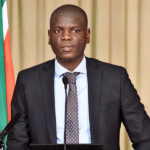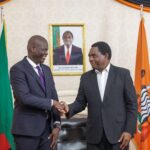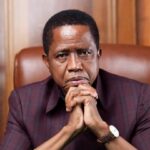The Democratic Progressive Party (DPP)’s recent announcement to introduce fuel and electricity subsidies if elected into government has triggered significant debate across social media platforms. While many citizens have welcomed the proposed policy as a solution to Zambia’s rising cost of living, critics argue that the country lacks the financial resources to implement such subsidies effectively.
Why Subsidies Matter
Fuel and electricity are integral to Zambia’s economy, impacting the cost of living, production, and overall economic growth. High energy costs have been linked to increased inflation, heightened poverty levels, and slowed economic growth. On the other hand, affordable fuel and electricity could lead to reduced costs of living, lower production expenses, and a boost in job creation.
Globally, subsidies for energy are a widely used policy tool, with countries such as the United States, South Africa, Nigeria, and Egypt employing them to achieve economic and social objectives. The DPP argues that Zambia, as a resource-rich nation, is well-positioned to afford such measures under prudent leadership.
Economic Implications of High Energy Costs
The DPP’s statement outlined the far-reaching negative effects of high energy costs on Zambia’s economy, including:
- Increased Cost of Living: Rising energy prices are driving up transportation, food, and general goods prices, making life unaffordable for many households.
- Reduced Business Competitiveness: Energy-intensive industries and small businesses are struggling with high operational costs, leading to closures, job losses, and reduced economic activity.
- Erosion of Disposable Income: Families have less money for essential goods, resulting in financial instability and increased stress.
- Inflation: High energy costs are a significant driver of inflation, which worsens the purchasing power of the kwacha.
- Trade Balance Pressure: Higher fuel costs have increased import expenses, deepening the trade deficit and accelerating the depreciation of the kwacha.
- Agriculture Challenges: Increased energy costs affect irrigation and farming operations, worsening food insecurity.
Funding Subsidies: A Question of Leadership
Critics of the DPP’s proposal question how Zambia can afford subsidies given its economic constraints. However, the DPP argues that Zambia’s wealth in natural resources—ranging from copper to gold and timber—provides a solid financial base for subsidies.
Antonio Mourinho Mwanza, President of the DPP, insists that the issue is not about lack of funds but about leadership and resource management. He points out that billions are lost annually through corruption, tax evasion, and illicit financial flows. Mwanza highlighted reports from the Financial Intelligence Centre, showing that Zambia lost over $3 billion to illicit activities in 2023 alone.
The DPP proposes to combat these financial losses by:
- Enforcing strict measures to curb corruption and tax evasion.
- Ensuring maximum benefit from Zambia’s natural resources.
- Closing loopholes in revenue collection systems.
Public Reactions
The proposed subsidies have sparked mixed reactions among Zambians. Supporters praise the initiative as a step toward economic relief, while skeptics question the feasibility of the plan, citing previous challenges in resource allocation and management.
Criticism has also been directed at the DPP’s past leadership, with some citizens expressing doubts about the party’s ability to deliver on its promises. Others argue that subsidies are a short-term solution and advocate for long-term strategies to address systemic economic issues.
The DPP’s promise of fuel and electricity subsidies has reignited discussions about Zambia’s economic direction. While the policy has its merits, its success hinges on effective leadership and a clear strategy to address corruption, enhance revenue collection, and manage Zambia’s vast natural resources efficiently.
The debate underscores the need for a balanced approach—one that provides immediate relief to struggling households and businesses while building a foundation for long-term economic sustainability. Subsidies alone cannot resolve Zambia’s economic challenges but could serve as a catalyst for broader reforms that prioritize the well-being of its citizens.
As Zambia gears up for the next elections, the electorate will undoubtedly scrutinize the feasibility of the DPP’s proposal and the leadership capacity needed to implement such transformative policies. Whether subsidies become a reality will depend not only on promises but also on the ability to translate vision into actionable, sustainable outcomes for the nation.
The conversation surrounding energy subsidies is a timely reminder of the critical role leadership plays in shaping Zambia’s economic future. As the debate continues, it remains clear that citizens yearn for solutions that address the high cost of living and restore hope for a better tomorrow.






